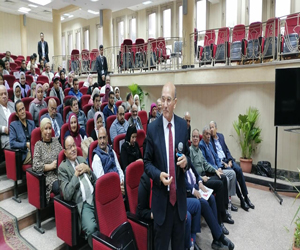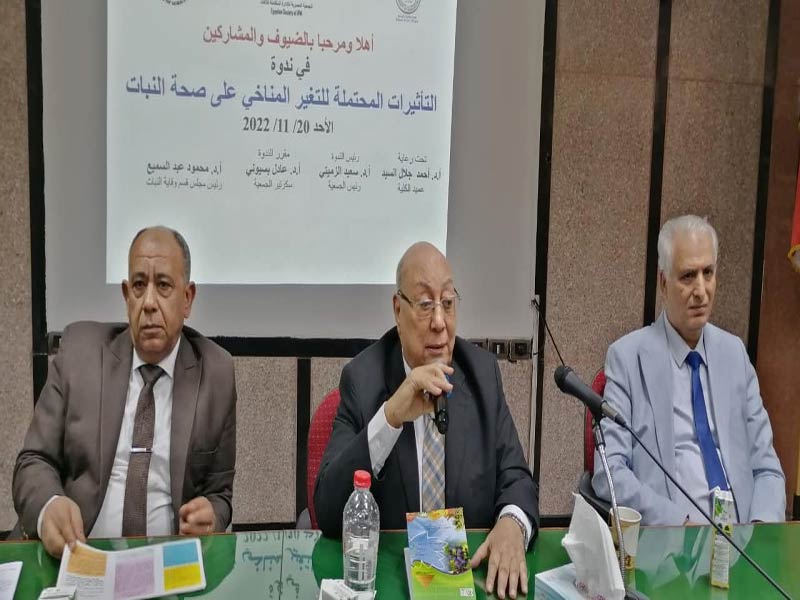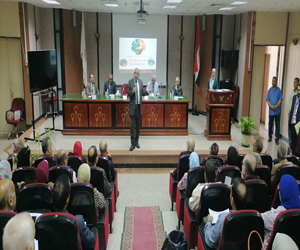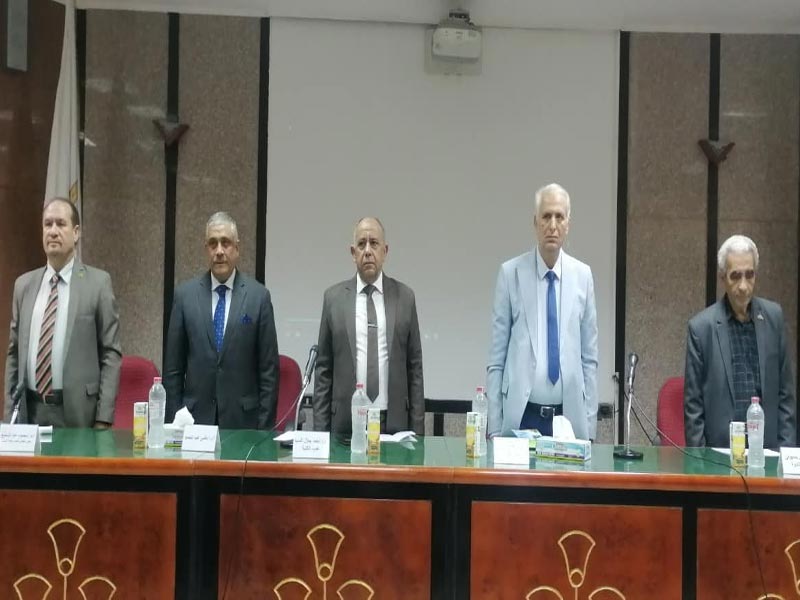The Possible effects of climate change on plant health... A symposium at the Faculty of Agriculture
Under the auspices of Prof. Dr. Mahmoud El-Meteini, President of Ain Shams University, Prof. Dr. Ahmed Galal, Dean of the Faculty of Agriculture and Chairman of the Symposium. The Egyptian Society for Integrated Pest Management at the Faculty of Agriculture held a symposium on the potential effects of climate change on plant health, in the presence of Prof. Dr. Mohamed El-Saeed Al-Zamiti, Rapporteur of the Symposium and President of the Society, and Prof. Dr. Adel El Bassiouni, Secretary of the Society, Prof. Dr. Mahmoud Abd. Al-Samie, Chairman of the Plant Protection Department, and Prof. Dr. Ahmed Jalal, Dean of the Faculty, opened the symposium, speaking about climate change and its impact on the agricultural sector, prof. Dr. Mohamed Abdel Majeed, Chairman of the Agricultural Pesticides Committee, spoke about pesticides and climate change, and a speech by Prof. Dr. Muhammad Al-Saeed Al-Zamiti on the potential effects of climate change on agricultural pests.
The second session was chaired by Prof. Dr. Nazmi Abdel Hamid, former Vice President of the University, while Prof. Dr. Ali Suleiman, Chairman of the Coordinating Committee for Plant Health, a speech on climate change and the Fall Armyworm.
And the speech of Engineer Saeed Abdel-Ilah on the challenges of climatic and agricultural changes in Egypt Prof. Dr. Adel Al-Basiouni, Secretary of the Society, on honey bees and the environment, followed by a panel discussion and recommendations.
 |
 |
 |
||
The symposium concluded that Egypt is considered a highly vulnerable country to climate change, with an expected increase in heat waves, dust storms, and storms along the Mediterranean coast, and extreme weather events, and stronger warming has been documented over the past 30 years, with average annual temperatures increasing by 0.53 degrees Celsius per decade and climate risks in the country will affect the plant. Climate changes are expected to lead to more favorable conditions for the establishment and spread of agricultural pests. It is expected to change the appropriateness of the local climate for pests, and then the change in their distribution and the inevitability of their adaptation to suit the new conditions. This symposium is interested in answering on some questions related to the potential effects of climate change on agricultural pests in general, it focused on the impact of climate change on the important elements of agricultural ecosystems, including the main pests (insects, diseases, and weeds). It also paid special attention to the potential impact of these changes on the spread and distribution of some food species. Dangerous pests such as the red palm weevil, Fall Armyworm, and other pests have spread and caused massive damage.
It also sheds light on the repercussions of climate change on plant protection materials, especially pesticides. Through this symposium, the association aims to emphasize strategic directions for pest management in light of climate change conditions.
The symposium also referred to the importance of honey bees as a vital influence and an environmental radar in predicting climate changes that affect bees in particular and the community in general.


.svg)




